 Gravity sucks, and so does weak writing.
Gravity sucks, and so does weak writing. —William Strunk, Jr., The Elements of Style
Filler Words, Fish Heads, and More
I don’t carry a copy of The Elements of Style close to my heart, and I haven’t thought it was the definitive usage manual for nearly half my life, but old Professor Strunk really hit the nail on the head for me with the statement above. If those words could be tattooed on the living brain of every writer, editors would have a lot less work to do. That’s why I chose it as the opening quote in The Little Book of Self-Editing for Writers. Since I haven't mentioned it in a whole week, I'd just like to point out that for the negligible price of $4.99, you can buy the e-book at Amazon.com, Amazon.co.uk, Amazon.ca, Amazon.com.au, and all Amazon stores. Thank you.
Writers love words, and they often use too many of them when fewer would serve their writing better. The earlier in her writing career, the more likely a writer is to add words to explain things that don’t need explaining, to add adverbs when no adverb is called for, to add pet words that are so close to her heart that she doesn’t see them in her manuscript, and to add words that not only don’t move her sentences and paragraphs along, but tie them up and stake them out in the sun. We’re all prone to these same errors from time to time, but once we’ve learned what they are and why we make them, we can use that learning to grow as writers.
I’ll cover some of these errors—in particular those related to over-explaining and other forms of repetition—in Part 5: When Words Get in the Way. For this article I’ll focus on filler words, fish heads (and tails), nominalizations, and a common word that may be making your writing sound common.
 Eeeeuw!
Eeeeuw! Have you ever used “suddenly” or “just then” to convey a feeling of urgency to the beginning of a sentence? It doesn’t. Adding unnecessary words before the action of a sentence begins slows it down, and your writing along with it.
For instance, which version of each sentence below seems more immediate (or “sudden”)?
A car screamed around the corner and fishtailed toward her.
Suddenly, a car screamed around the corner and fishtailed toward her.
--
Bobby dove for the gun.
Just then, Bobby dove for the gun.
It’s the first example every time; it gets right to what’s happening and engages the reader without author interference.
In addition to “just then” and “suddenly,” a lot of other unnecessary words and phrases like to cluster at the beginning of a sentence, as though trying to get it up to speed before it leaves the ground, and weighing it down instead. These are fish heads—the part you cut off.
The words in the list below, and words like them, may be bloating your writing. You can make a case for any of them having its place, but that place is almost never at the beginning of a sentence that can get off the dime more effectively without their added weight. When not occurring at the beginning as fish heads, you may find words like these in the middle as filler words and at the end as fish tails. In all cases, consider carefully whether they're useful to conveying a direct sensory experience to your reader, or whether they're just excess baggage.
| A second / an instant later, Actually, Again, so again, once again, Apparently, As always, As of yet, As you know / As you are aware, At that moment, Finally, For some reason, For that matter However, Immediately, In order to ____ In the midst of ____, It occurred to ____ that In the process of [verb]ing ____, Needless to say, Just then, | Next, On the other hand, Once / At one time, Prior to ____, Suddenly, Suffice it to say, Sure enough, That meant Then, Just then, Soon, The (only) problem was, Unbeknownst to ___, Unfortunately, Upon ____ing, (Up)on closer inspection, While (after, before, in, by) doing (or other –ing) With that, Without further delay, Without warning, |
Many of the items in the above lists can also flop around on the ends of sentences. When you find a word or phrase that might be a fish tail, follow back to the word or phrase that precedes it, and see if the sentence wouldn’t be better ended there. Whenever possible, a sentence should end on the strongest idea, the strongest word—the place you want to make an effect on the reader. If any of yours do not, either rearrange the words or chop off any fish tails that follow a strong natural ending.
The most egregious fish tails of all occur when the writer feels uncertain about how well he’s shown a thing and adds unnecessary words to explain it. The examples below may seem exaggerated, but they’re taken from manuscripts and published books. Only the names have been changed to protect the guilty.
“No way,” Larry said in denial.
“I’d love to!” Beth told him, showing her joy.
“Do it now!” Franz shouted in a yelling voice.
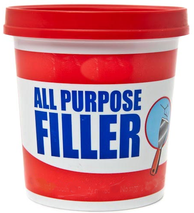 It comes in giant economy size!
It comes in giant economy size! In addition to fish heads and tails, we may unconsciously add other fillers to our writing. “Just,” “that” and “then” are prime examples; they’re good words in moderation, but we can become habituated to them.
This is by no means a complete list, and you’ll probably find more examples to add from your own first drafts, as I have. I’m not saying every instance of all of these words and phrases will be unnecessary, but if you take the time to search for each of them and notice where and how you use them, I think you’ll find lots of places where they crept in unneeded. If you ask your word-processing program to count them for you, you might just be horrified.
| Able to About Already Began to Caused (something) to Continued to Could Decided to Even I might add Just Kept ___ing Like, as if, | Managed to ____ Now Obviously Proceeded to So to speak Started to Still That The fact that Then To say the least Very |
 Zombies can be cute. Zombie nouns are not cute.
Zombies can be cute. Zombie nouns are not cute. “Nominalization” is a nominalization – a verb made into a pseudo-noun, such as “rectification” or “organization” as opposed to a concrete noun—an actual person, place, or thing. Nominalizations convey little meaning while sounding utterly important, which is why they crop up so often in political speeches: they suggest a wide range of different things to different people and give a general feeling of usefulness (and extra syllables) without actually doing much of anything. Using them in place of concrete nouns or real verbs can make your writing sound like a corporate memo. You can’t avoid them altogether, but keep your eye out for them and try to rephrase where possible.
Helen Sword, in her excellent New York Times article on the subject, calls nominalizations “zombie nouns” ‘...because they cannibalize active verbs’ and ‘suck the lifeblood from adjectives.’ A woman after my own heart.
Not all nominalizations end with –tion, but that’s a place to start looking for them, and is easily searched. Words ending in –ship and -ence also sound solid and meaningful, but may freeze-dry otherwise free-flowing prose.
Of course if you want to make a character sound like a corporate memo, then nominalization becomes a potent tool. But watch for it creeping into other characters’ dialogue, or into the narrative. Use a concrete noun, or change the sentence to accommodate a dynamic verb. Keep your prose moving.
The “ongoing” test: a word is probably a nominalization if you can put the word “ongoing” in front of it and make sense. If you can’t, it probably isn’t. You’ll never see an “ongoing fruit fly,” but you might be part of an “ongoing investigation.” “Ongoing urbanization” might disturb you, but you needn’t lose any sleep over “ongoing armchairs.”
The “wheelbarrow” test: If you can put it in a wheelbarrow, however large, it’s a concrete noun. You can put cats in a wheelbarrow—carefully—but not “classification” or “relationships.”
Consider the following examples of commonly used nominalizations followed by the same idea rewritten to return them to their verb state.
Willy gave the matter further consideration.
Willy considered the matter further.
--
Miller made an accusation of slander against Norden.
Miller accused Norden of slander.
--
It only served as an illustration of my problem.
It only served to illustrate my problem.
Replace nominalizations and put the wheels back on your writing.
 "Someone" existing "Somewhere"
"Someone" existing "Somewhere" We tend to use the word “some” when the quantity or other specifics about a thing are unknown.
Lester expected to come away from the chicken coop with some eggs.
Ehrdrich would be bringing some muscle with him.
As such, it’s not incorrect as much as unnecessary; the sentences below convey the same information.
Lester expected to come away from the chicken coop with eggs.
Ehrdrich would be bringing muscle with him.
So whether or not to use “some” in a case like this is largely down to how you feel about what it’s contributing—or not—to the meaning and the sentence’s rhythm.
Sometimes the quantity in “some” is knowable but not important.
Louise brought some chicken to the picnic.
I added some sugar to my coffee.
…but it still has that “filler” quality. The sentences read a little cleaner without it.
Louise brought chicken to the picnic.
I added sugar to my coffee.
“Some” performs a useful job when a sense of mystery is required, and we’re not quite ready to reveal our specifics…
Something skittered in the underbrush.
Something nibbled at the back of her mind.
Someone was coming.
…but not so much when we need to paint the reader a picture.
Giannino arrived with some soldiers.
(And along the same lines:)
Giannino arrived with a group of soldiers.
Some? How many? What does “some” or “a group” look like in a reader’s mind?
Giannino arrived with a platoon of soldiers.
…with a company of soldiers.
… with a battalion of soldiers.
… with three soldiers.
Specifics paint a picture. “Some” does not. In sighted people, more than 2/3 of brain real estate is given over to aspects of the visual, including imagining pictures. Painting a picture for the reader is good.
Go looking for weakeners in your manuscripts. Find them, then kill them. The cranky editor does not advise showing mercy to the enemies of your writing.
You can download a copy of the Self-Editing Quick Reference, an excerpt from The Little Book of Self-Editing for Writers, at the Ravenscourt Press website.
TL;DR
Are you slowing down your sentences with unnecessary words at the beginning? Fish heads. Chop ‘em.
Are your sentences trailing on after they've done their work? Fish tails. Bin ‘em.
Is your writing free of superfluous filler phrases: as you know, looked like, ended up being, etc? See above.
Be sure to tune in next week for Self-Editing for Everyone Part 5: When Words Get in the Way, where I'll offer up more about what weakens your writing.
COVER ART
All the fabulous pulp magazine covers on this article series were created using the amazing Pulp-O-Mizer from art by its creator, Bradley W. Schenck.

Thanks for linking to this blog!
Joel Friedman's Self-Publishing Carnival of the Indies
Elizabeth Craig's Mystery Writing is Murder
Katherine Lowry Logan's Notes from Tabor Lane
A Novel Experience - Best of the Week's Articles
Karen Woodward - Ten Tips on How to Write a Book
Susan Ardelie’s Weekly Crush Links
Did I miss anyone? Let me know!

Part 1: The Most-Hated Writing Advice Ever
Part 2: Vampire Verbs, Zombie Verbs, and Verbs that Kick Ass
Part 3: Attack of the Adverbs!
Part 5: When Words Get in the Way
Part 6: Secrets of Relative Velocity
Part 7: Two Languages
Part 8: Dialogue Tags
Part 9: Dangling Modifiers
Part 10: Passive Voice
Part 11: HomophonesPart 12: Point of View Violations
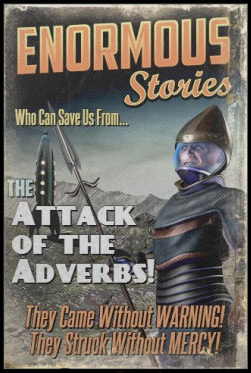


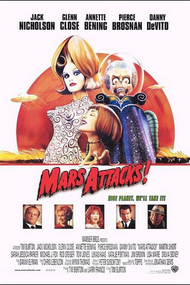

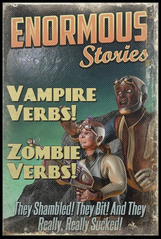








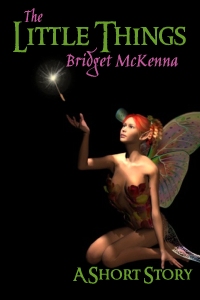




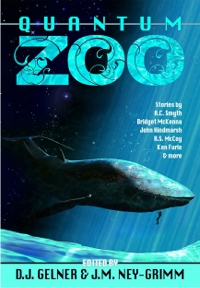





 RSS Feed
RSS Feed




